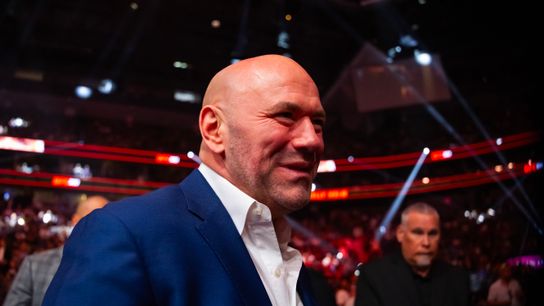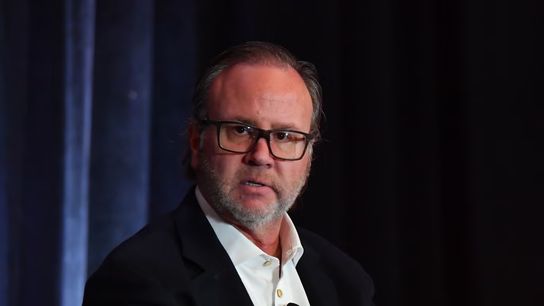It’s difficult to make sense of the senseless, yet each time a former Bellator fighter takes to social media to plead for a fight or for his or her release, I try to understand why the PFL management team ever thought it a smart idea to acquire Bellator.
On Monday, it was Sergio Pettis who was on social media moaning. At various times in the 15+ months since the acquisition was completed, it’s been Gegard Mousasi; Cris Cyborg; Patricio “Pitbull” Freire; Corey Anderson; Patchy Mix, Johnny Eblen and Aaron Pico.
There may be others, but you get the point: The PFL bought an asset, and for more than a year has done almost nothing with it but let it quickly depreciate.
It’s like the PFL was a used car dealer located in a sketchy part of town, that acquired a large number of high-end luxury cards in great shape at a fraction of their market value.
There’s a Rolls Royce and a Maybach Mercedes, as well as a couple of Ferraris, a Lamborghini, a few Maseratis, a Bentley and a Lexus.
If you went to the trouble of negotiating that deal and checking out the vehicles, it only stands to reason to shine them up, move them into the showroom and sell them for top dollar.
Instead, the cars were stuck out back where they’ve stayed for almost 16 months, exposed to the elements, gathering dust, with bird droppings everywhere, and rust forming on the rims.
It makes no sense. You don’t buy a Rolls and then tool around town in a 99 Toyota Tercel pushing 300,000 miles.
Yet, here we are.
The PFL released Mousasi fairly quickly after he demanded his contract be honored.
Pettis has yet to compete for the PFL, though he was permitted to fight once for Rizin. Mix, Freire, Anderson, Cyborg and Pico have fought once. Eblen is the lucky one, since he’s competed twice since the PFL acquired his contract.
Pettis has been ready to fight since the PFL acquired his deal. Yet, the underlying issue remains clear: The PFL management team has mishandled its acquisition, putting not just Bellator’s legacy at risk, but the future of the PFL itself.
The PFL ultimately released Freire and he signed with the UFC. The UFC, of course, didn’t let him sit around idly; it announced he’ll fight Yair Rodriguez at UFC 314 on April 12 in Miami.
Pico’s manager said he’s a free agent and UFC CEO Dana White confirmed the promotion’s interest in him. PFL has retained a right to match, and Pico said he wants no part of being with the PFL.
As the acquisition talks were heating up, the story unfolded across multiple stages. Paramount, the former owner of Bellator, was in discussions with the PFL while Bellator’s president, Scott Coker, was handing out contract extensions.
Coker had to keep operating as normal because he did not know if a deal with PFL would go through.
But PFL was doing its due diligence even as Coker was continuing to run Bellator as if it were an ongoing entity. It had the opportunity to look at all of the contracts it acquired. And while PFL officials had talked about having some of the deals renegotiated, they ultimately took on all the contracts.
Given their subsequent actions, it’s hard to understand their interest in Bellator in the first place.
As the acquisition was happening, PFL owners were also raising funds, particularly from Saudi Arabian entities. This suggests that their interest in Bellator may have been more about boosting valuation than integrating it into their business.
By adding the Bellator fighters to its roster, it appeared to be better positioned to compete at the highest level with the UFC, and thus raised its value to prospective investors.
PFL owner Donn Davis and CEO Peter Murray are far more transactional than other MMA leaders.
Davis has expressed repeatedly his belief that there is a larger demand for MMA throughout the world than is currently being met.
White’s passion for MMA, particularly in the early days as he was trying to build the UFC, was palpable. You couldn’t miss how much he loved this sport and how captivated he was by it.
Not long after the sale was finished in 2001 and White became president of the UFC, I was in his office. It was a tiny room in which you could spread your arms and touch walls on either side.
I was a boxing guy, and he was trying to explain the grappling element of MMA to me. He got onto the floor and White was showing me the ins and outs of the sport on that floor in his office.
He wasn’t saying he loved MMA; he lived it.

File
UFC CEO Dana White shows through his actions he loves MMA
The same is true of Coker.
Coker first built Strikeforce and later Bellator with an abiding love, almost a reverence, for the sport.
That passion seems to be missing in Davis and Murray. They seem to see MMA more like an everyday commodity, something to be bought and sold like any other consumer product.
In speaking to countless managers, trainers and fighters, two points emerged from those talks: Davis and Murray don’t truly love MMA, nor do they particularly understand it.
They’re competing against a company that has become to MMA what the NFL is to football and the NBA is to basketball: The absolute best of the best.
The UFC has not only become a leader in the fight game because of elite businessmen, it has flourished because it is led by people who know the sport, inside and out. The difference between UFC and PFL is the difference between passion and business-as-usual.
Members of the UFC’s executive team love MMA as much as the most diehard fan. No one gets that feeling from Davis and Murray.
It’s their company and they can run it as they choose.
What they need to understand, however, is that the assets they acquired are people, whose careers are naturally short because of the nature of the industry they’re in.
They may feel like sitting the fighters on the sidelines and ignoring them is good business, but there’s a human cost to their actions.
These aren’t just fighters: They’re individuals with lives, dreams, and families relying upon them. The PFL owes it to them to either honor their contracts or release them to pursue jobs where they can thrive.
If the PFL continues to ice these athletes, they’ll not only lose the talent they’ve acquired but risk alienating the entire MMA community.
Their inaction is only going to feed upon itself. Inevitably, fighters will become wary of ever signing with the organization because they have shown they don’t understand how to run a high-level fight operation.
The actions of the PFL’s leadership threaten the very credibility of their organization.
That’s a mistake they won’t recover from.

Courtest PFL
PFL founder Donn Davis.

